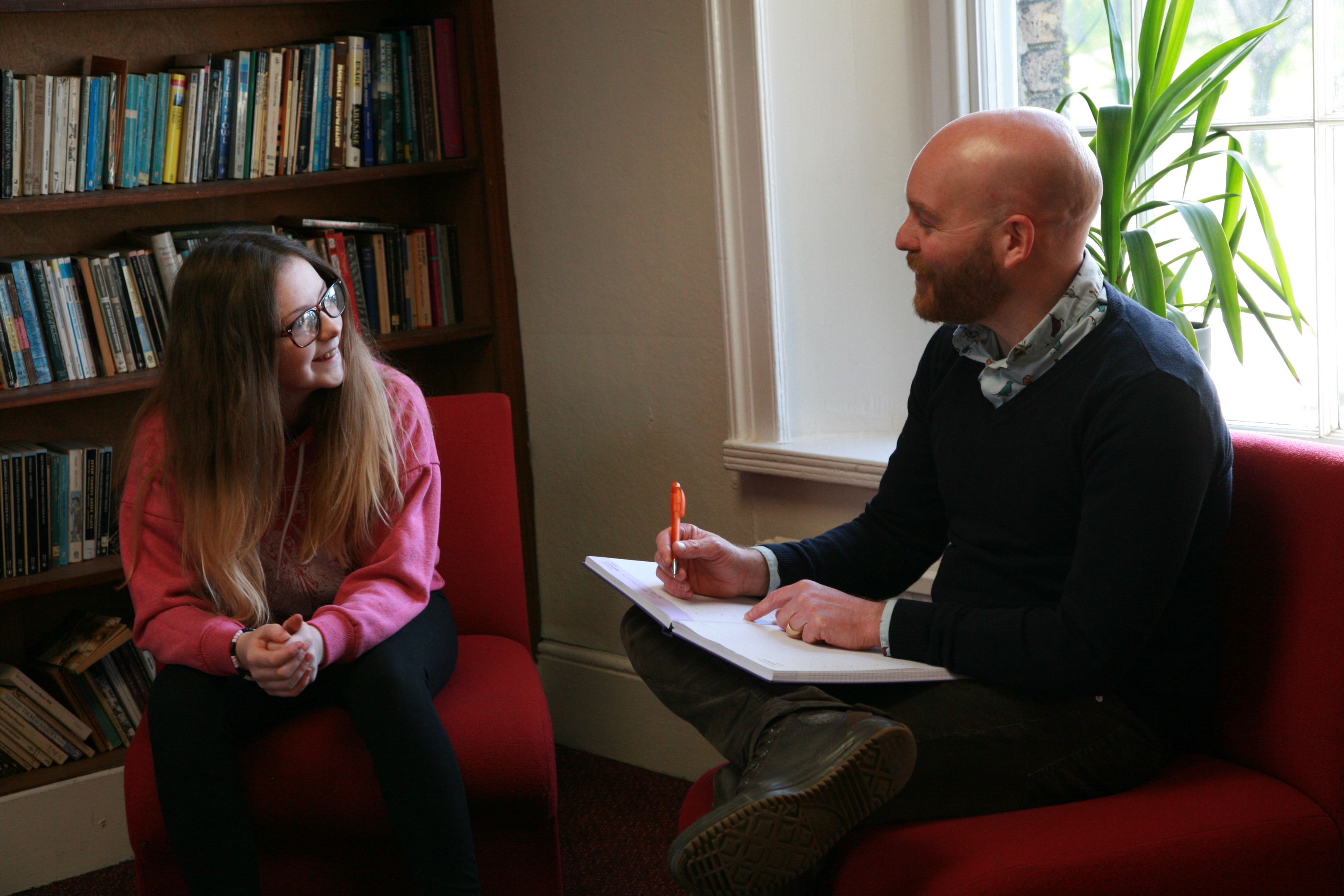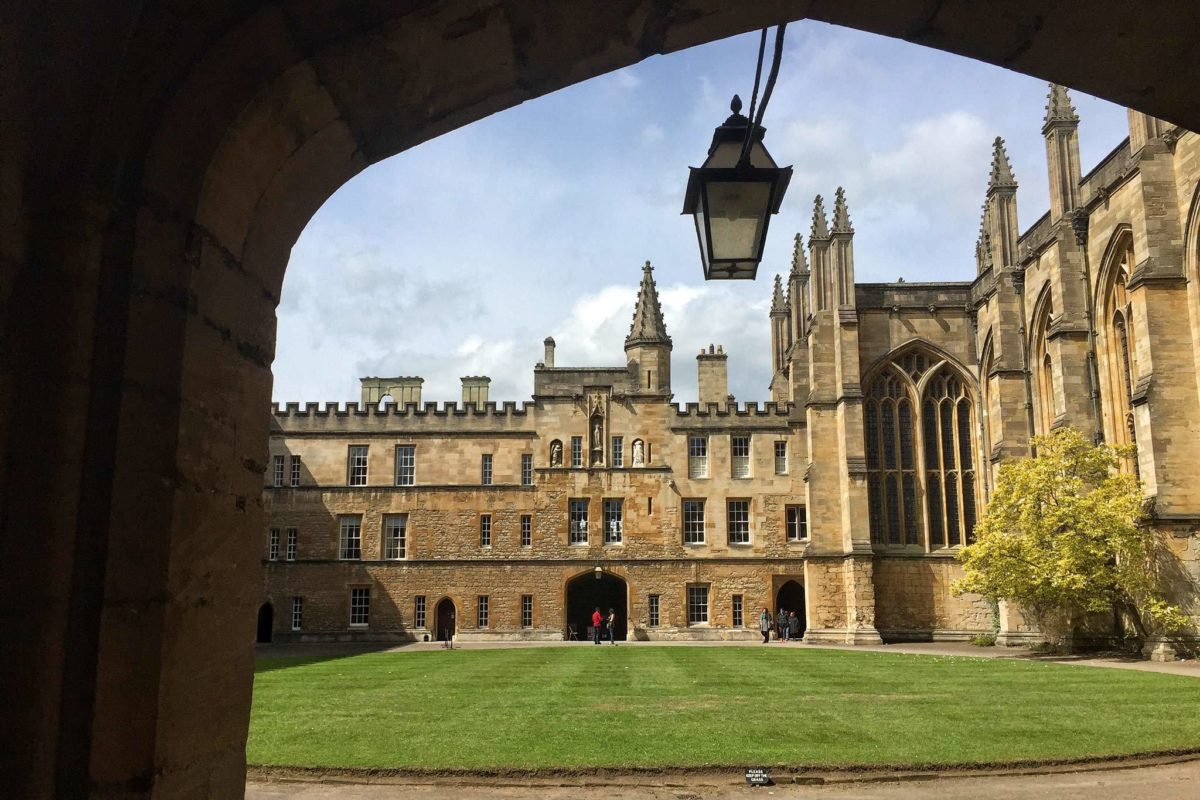Getting ahead with your university applications
As the seasons change, the weather becomes (hopefully) warmer, and the academic year speed through towards the summer term, our minds start turning towards future years and how to apply for the University places we’ve been thinking of. Whether we’re in year 12 or year 10, it’s never too early to start thinking about uni applications, but it can be tricky to know where to begin! To help with this, we’ve leaned on the expertise of our friends at Oxbridge Applications, part of the Dukes Education Family, to shed some light on how to get started on your journey to university, wherever you may be in the process.

Year 12
As you close in on the end of your penultimate year of sixth form, now is a great time to start thinking critically and practically about your university admissions. UCAS deadlines are in January, or October if you’re thinking of applying to Oxford or Cambridge, so making the most of your spare time, particularly the summer holidays, is going to be crucial in making sure your application is in tip top condition before your final year of studies begins!
The first important step is to nail down which course(s) you’re going to be applying for. Consider which A-Levels or IB Subjects you’re studying, as this may shape which courses you’re qualified to apply to. University websites will outline the key requirements for each course, including not just subjects you need to have, but also those which past applicants have found useful in their applications. Think critically not just about what you are qualified for, but also what you enjoy studying; an undergraduate degree could take between three and six years to complete, and those who enjoy and are passionate about their studies fare much better not just in applications but also in making the most of their time when they are actually there!
Now that you’ve got some courses in mind, it’s time to solidify the five university options you’re going to list on your UCAS form. Again, this is where solid research comes into its own; don’t be tempted to just select universities at random based on stories you’ve heard or names you recognise! Of course, if you’ve got mates at Manchester who say they love it, or an Auntie who went to Oxford and cannot recommend it enough, then definitely reach out and listen to their advice, but also make sure that you’ve done your own research to check that it’s right for you. Various factors can be taken into account when choosing the right universities for your application, such as which course modules you like the sound of, which city or town you can see yourself living in, or how the university ranks for your specific subject.
Once you’ve got course and universities in mind, it’s time to begin thinking about your personal statement. Writing a personal statement from a blank sheet can be very daunting, so it’s much easier to begin with lots of reading and thinking before getting it all down. If you’re looking for inspiration when it comes to reading around your subject, we would highly recommend checking out your subject faculty’s website, where you will often find useful reading lists – picking a few key texts or resources which appeal to you is a great way to begin your reading journey. Then, before you start drafting your personal statement, we would recommend that you create a list of everything you have read and any academic activities you have participated in outside of class that are relevant to your subject. This will be a great starting point for your statement and will help you narrow down what topics you would like to discuss.

Year 10/11
If you’re in years 10 or 11, applying to university will certainly be lower down on your list of priorities than those in the years above. However, this doesn’t mean that there aren’t things you can start doing now to help you get ahead with the application process. However, make sure that any preparation work you are doing is complementary or in addition to your GCSE revision, as making sure you get good grades in your GCSE exams is the best prep you can do to give yourself an impressive application and good predicted A-levels!
Aside from nailing your GCSEs, something you want to really be thinking about is which subjects you’re going to take at A-level or IB. The majority of courses at top-level UK Universities, including Oxbridge, have certain requirements on subjects which you either must have or should have studied at A-level in order to be accepted onto the course. If you already have a good idea of what you want to study at University, check the subject requirements on University application websites for said subject. These are non-negotiable in the majority of cases, so it’s important to pay attention to this when choosing your subjects! Think also about subjects which will be useful for this subject or any admissions tests you might have to take; even though certain subjects are not strictly required, there may be some which will be of great help to you in the application process and on the course once you get there.
If you’re not yet sure of which course you want to do, don’t worry! There is no need to rush your decision, and most people will be in the exact same decision. In this case, A Level choices should be based on three things: ability, interest, and complementarity/subject groupings. Primarily, and perhaps most intuitively, picking subjects that you are good at and which you have enjoyed are crucial in your success at A-level and beyond. You can make these decisions based on subjects you enjoyed or excelled in at GCSE, or subjects which have transferrable skills from your favourite GCSEs (for example, if you do best at essay-based humanities GCSEs, then A level Philosophy or History of Art may be worth considering). You can bolster these choices further by picking subjects based on the principle of complementarity; For example, if you’ve reflected on the last two points (ability and interest) and have concluded that your top subjects at GCSE were History and English, it might be a good idea to pick a third subject that relates to those in some way – perhaps another source-based subject, or another literature-based subject. This tends to be a ‘safe’ way to pick subjects that will make for a cohesive and well-rounded uni application. Finally, it is worth bearing in mind that top UK universities often prefer more traditional A-level subjects, such as Sciences, Maths, English literature, Languages, History, and Geography. These subjects are often called ‘facilitating’, and if you are totally unsure about A Level choices, then this list is a great place to start.

About Oxbridge Applications
Oxbridge Applications, part of the Dukes Education family, speaks with young people and their families on a daily basis to discuss individual educational pathways. Register with Oxbridge Applications and receive a wealth of resources, including our free e-book “So You Want To Go To Oxbridge? Tell me about a banana”.
It can be difficult to work out exactly what you should be doing to give yourself the best chance of success, but we are always happy to help. Telephone +44(0)20 7499 2394, email at [email protected], or request a callback to discuss your situation.



